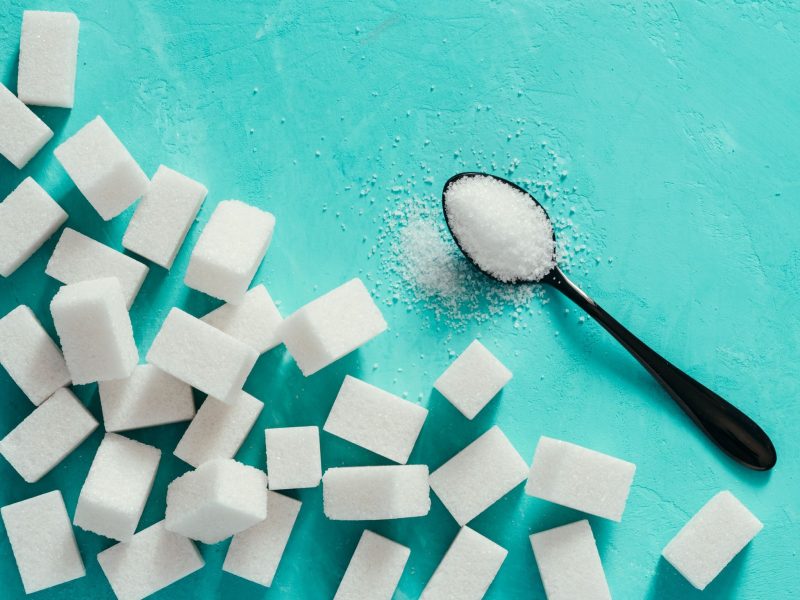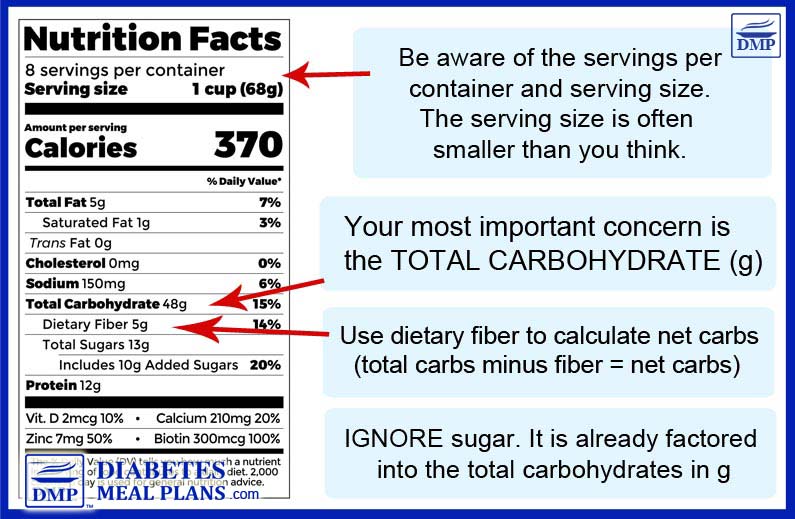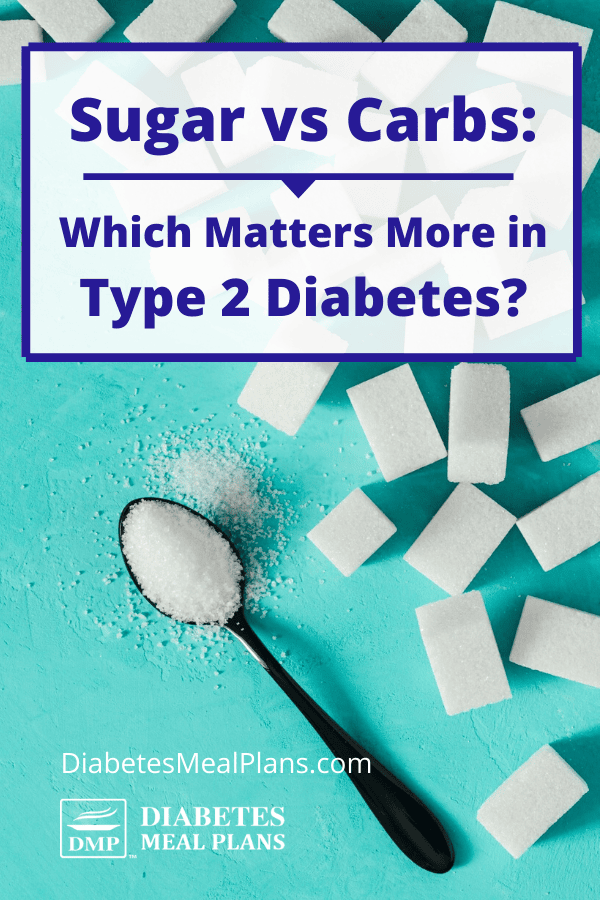Table of Contents[Hide][Show]
We recently got asked the question: If I have to concentrate on one thing in my diet, is it carbohydrates or sugars?
Quick answer: With type 2 diabetes, carbohydrates are the nutrient that affect blood sugar levels the most. Carbs and sugar are the same thing so overall you should focus on ‘Total Carbohydrates’ in your diet.
Total carbs, net carbs, glucose, and sugar…do all these words boil down to the same thing? How do know what to focus on when you’re reading a nutrition label?
These are some great questions that we hear all the time and after reading the info below, we hope you’ll be more confident reading food labels and making carb-conscious choices.

Carbohydrates vs Sugar
When we talk about diet with diabetes it can be very confusing.
First things first, let’s establish that carbohydrates are the nutrient that affect blood sugar levels the most. This is because carbohydrates are sugar.
Carbohydrates provide our body with energy in the form of glucose, which is another word for sugar.
Nearly all carbohydrates, with the exception of fiber, will eventually break down into glucose or sugar.
The main point being: carbohydrates, glucose and sugar are essentially the same thing.
In general, that means you need to focus on the carbohydrates.
Decoding Carbs and Sugar on Food Labels
When looking at a food label you will notice that ‘Total Carbohydrates’ is in a bigger font compared to the subcategories underneath.
One of these subcategories includes sugar. These subcategories are already calculated into the Total Carbohydrate number.

You may notice on the new food labels that ‘added sugars’ are now being distinguished from the naturally occurring sugars.
Many whole foods have naturally occurring sugar, so this added sugar on the label is a sugar that is not naturally present in the food. Another way to determine if there are added sugars is by looking at the ingredients list.

Try not to overthink it, though!
Remember that the sugar and added sugar grams are calculated in the Total Carbohydrate number. Therefore, the overall carbohydrate is the thing to focus on.
Whether it is a complex carbohydrate like a whole grain food or more refined grain like white pasta, both of these foods will break down into sugar/glucose and cause your blood sugar to rise.
All carbohydrates have an impact on blood sugar and A1c levels, but high-carb foods like pasta, rice, potatoes, bread, noodles, cakes and bakes, all have much more impact than carbohydrates such as broccoli, blueberries or carrots.
Vegetables and low-sugar fruits like berry contain fewer carbs to begin with but then they also have more dietary fiber than, say, a bowl of white rice does. This is why some “carb-y” foods are better for blood sugar stabilization than others.
The takeaway is that monitoring carbohydrate intake can aid in better blood sugar control.
Remember, carbs and sugar are essentially the same, and so you should focus on Total Carbohydrates on a food label and try not to get bogged down by all the extra details.
More importantly, try to stay away from processed and packaged foods, and choose more whole foods, such as the ones we recommend in this diabetes-friendly food list.
And since carbohydrates are the nutrient that influences blood sugar and A1c levels the most, you may also be interested to learn how to reduce carbohydrates in your diet altogether.

Brian
What about Allulose which has 4g carb in a 4g serving yet 0 calories? And studies seem to indicate that it reduces serum glucose and insulin levels, but possibly only postprandial?
Dr Jedha
Hi Brian, you will find this info on allulose helpful.
Brian
Thank you.
So is it that the carbs in alulose do not become glucose with dugestion?
I also see a srudy showing that allulose can reduce the impactof other carbs and sugars. With type 2, i have eliminated ALL added sugar but continue to see a1c rise. Now reducing carbs as much as i can. Is there amything to block carb absorption or conversion to gl?
Abdul Hameed
Hi there thank you so much for the great information, I appreciate your help, Thank again 🌹👌👍
Lisa Franklin
How many carbs does a diabetic have in one day. I am 59 and weight 177and 5 ft.7.
Jedha: Nutritionist (MNutr)
We recommend a maximum of 100 grams per day. Read more over here.